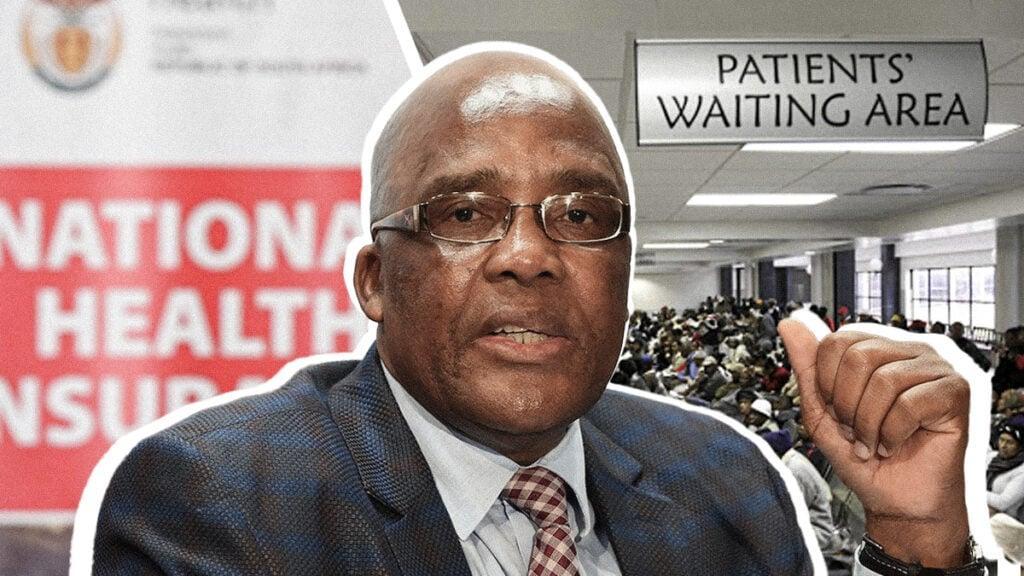Africa-Press – South-Africa. Sakeliga has joined a host of legal challenges against the government’s National Health Insurance (NHI) scheme after it was signed into law by President Ramaphosa in May 2024.
The lobby group’s legal action joins that of the Health Funders Association (HFA), trade union Solidarity, and the Board of Healthcare Funders (BHF).
Sakeliga has issued an application with the Pretoria High Court to overturn the NHI Act. It said the sheriff is currently serving the applications on the state respondents.
The lobby group’s case entails a comprehensive defence of businesses and the public against the nationalisation of healthcare.
“We also present the court with evidence that the state’s plans to control all healthcare, effectively banning private medical aid and insurance, would require resources equivalent to a more than 30% increase in income taxes,” it said.
The Act envisages an almost entirely state-controlled healthcare system in which the state claims to be able to pay for everyone’s healthcare.
Sakeliga argued that this is not only unaffordable, but also unconstitutional as it bans medical schemes and insurance businesses that currently serve nearly 10 million customers in South Africa.
“Our papers demonstrate that the NHI Act is impossible to fully implement and will be another mismanaged state fund and a colossal waste of resources,” it said.
“The NHI is inappropriate and unviable in South Africa, an economically struggling country with no growth and insufficient medical and healthcare resources.”
The state, moreover, is already under enormous fiscal stress and has a well-documented track record of severe, endemic, and persistent governance failures.
Sakeliga warned that If the state attempts to implement the NHI Act, it risks causing significant and lasting harm to healthcare services, while driving thousands of skilled medical practitioners overseas.
The Act also has the potential to kickstart a fiscal crisis, leading to a structural economic slump and job losses.
Economic analysis commissioned by Sakeliga showed that even conservative cost estimates of the NHI mean the state would need to fill an enormous annual funding gap of nearly R500 billion, requiring a 30% increase in income tax rates.
Having recently witnessed the backlash and resistance to just a 2 percentage point proposed increase in VAT in the 2025 National Budget, the tax increases required to fund the NHI are a non-starter.
If the government tried to fund the NHI out of existing taxes and borrowing, it would have to make debilitating cuts to other government services and raise government borrowing from already unsustainable levels.
“Healthcare businesses should steer as far as possible away from over-compliance and pre-compliance with the NHI,” Sakeliga said.
“Independent businesses and business organisations should remain patient, avoid unnecessary compromises, and support well-structured opposition to buy time and repeal the NHI Act or render it functionally impotent.”
Legal challenges to the NHI
Solidarity CEO Dirk Hermann
Sakeliga’s legal challenge is the latest in a long line of opposition to the NHI Act in South Africa, with Solidarity kickstarting the action in June 2024.
In July 2024, the Pretoria High Court ruled in favour of Solidarity in its case against the Minister of Health, the President, and the Health Department’s Director-General, declaring sections 36 to 40 of the NHI Act unconstitutional.
These sections, which required a Certificate of Need for healthcare practitioners to operate in specific areas, were found to unlawfully infringe on the rights of medical professionals.
Following the ruling, Solidarity CEO Dirk Hermann stated that this decision suggests parts of the NHI Act may also be unconstitutional.
This was followed by a legal challenge form the Board of Healthcare Funders (BHF) taking the scheme to court.
It argued that the NHI Act is too vague to be implemented, is unconstitutional, and is unaffordable. The BHF is seeking to set aside President Ramaphosa’s decision to sign the NHI Bill into law.
“The BHF is challenging the NHI Act in court because we do not believe it will achieve the government’s objective of achieving universal health coverage by 2030.”
“This is because we believe the NHI Act is too vague to be implemented, is unconstitutional and is unaffordable.”
Instead, it said the NHI Act will undoubtedly result in a regression of healthcare services in South Africa.
“It, as well as other management failures, will result in the mass departure of skilled healthcare professionals; concentrate excessive power in the national department of health and will do nothing to address the current administrative deficiencies in our healthcare system,” it said.
The BHF also warned that if the NHI is implemented in its current form, it will undermine coverage for the 9.7 million South Africans in private medical schemes.
“The BHF contends that removing healthcare benefits, for even just one of these beneficiaries, is in breach of section 27 of the Constitution, which guarantees everyone the right to access healthcare services,” it said.
The organisation is also concerned about how the Bill was assented to and made law.
South Africa’s government is committed to implementing NHI in South Africa, despite the raft of legal challenges against the legislation.
Health Minister Aaron Motsoaledi has responded to criticism of the NHI and the legal challenges head-on, saying that the scheme will be implemented whether people like it or not.
“There are people who believe that we have no plans nor inclination to do that. We want them to listen very attentively today,” he said during the Health Department’s Budget Vote for 2025/26.
He further urged attendees to “ignore those who want us to believe that there is nothing to fix” in the private healthcare sector.
For More News And Analysis About South-Africa Follow Africa-Press






